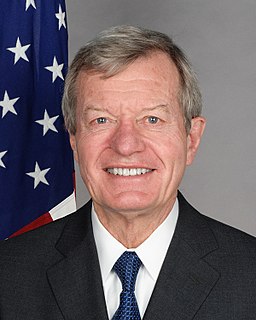A Quote by Ai Weiwei
China is at a different stage of development, human rights are violated here much more often. And still, we see improvements even here.
Related Quotes
The world has got more democracies than ever, and human rights are high on almost every country's agenda. Still, corruption and oppression are far too common threats to the democratic society. And we have seen a dramatic increase, the last 10-15 years, of ethnical conflicts and humanitarian crises with human rights violations as important elements., but also more of corruption. Human rights are praised more than ever - and violated as much as ever.
I've been in China enough to know that you shouldn't opine on it unless you speak Chinese and have lived there for twenty years. I wasn't pretending to be a China expert in that final chapter. I was just pointing, first to the parallels between Chinese behavior toward us and ours toward GB when we were at the same stage of development, and secondly to how much harder their development path is than ours was.
In talking about human rights today, we are referring primarily to the following demands: protection of the individual against arbitrary infringement by other individuals or by the government; the right to work and to adequate earnings from work; freedom of discussion and teaching; adequate participation of the individual in the formation of his government. These human rights are nowadays recognised theoretically, although, by abundant use of formalistic, legal manoeuvres, they are being violated to a much greater extent than even a generation ago.
We must understand the role of human rights as empowering of individuals and communities. By protecting these rights, we can help prevent the many conflicts based on poverty, discrimination and exclusion (social, economic and political) that continue to plague humanity and destroy decades of development efforts. The vicious circle of human rights violations that lead to conflicts-which in turn lead to more violations-must be broken. I believe we can break it only by ensuring respect for all human rights.
For all the tough talk about China during the presidential debates, Romney and Obama evaded any mention of China's suspect human rights record, corruption, and rule of law.
By not tackling these controversial topics, the candidates are protecting a strategic partnership with China at the expense of essential human values and beliefs.
For all the tough talk about China during the presidential debates, Romney and Obama evaded any mention of China's suspect human rights record, corruption, and rule of law. By not tackling these controversial topics, the candidates are protecting a strategic partnership with China at the expense of essential human values and beliefs.
I'm struck by how very few people outside a rarefied world of true believers understand what you mean when you say human rights - that includes development experts and economists who are very keen to implement the UN Millennium Development Goals. They've told me quite frankly, that they don't know exactly what a human rights approach is.


































